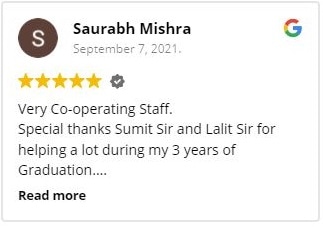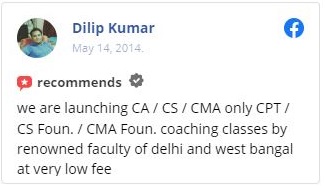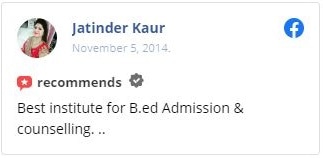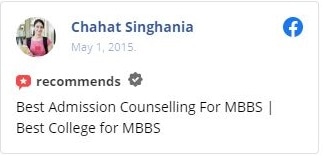ANM Admission Process
Auxiliary Nurse Midwife (ANM) Course: Admission Process, Eligibility Criteria, Scope, Duration, Fees, Syllabus and Career Opportunities
Auxiliary Nurse Midwife (ANM) Course: Overview
The Auxiliary Nurse Midwife (ANM) course is a vital training program designed to equip individuals with the skills and knowledge necessary for providing basic healthcare services, particularly in maternal and child health. ANMs play a crucial role in the healthcare system, especially in rural and underserved areas, where they serve as primary caregivers and health educators.
Key Components of the Course
Duration:
- The ANM course typically lasts for 1 to 2 years, depending on the institution and program structure.
- The ANM course typically lasts for 1 to 2 years, depending on the institution and program structure.
Curriculum:
- Anatomy and Physiology: Understanding the human body and its systems.
- Nutrition: Learning about dietary needs, especially for pregnant women and infants.
- Community Health Nursing: Focus on public health practices, community assessment, and health promotion.
- Midwifery: Training in antenatal, intranatal, and postnatal care, including safe delivery practices.
- Child Health: Understanding growth, development, and common health issues in children.
- Basic Pharmacology: Introduction to medications and their administration.
- Health Education and Promotion: Skills for educating communities about health and wellness.
Practical Training:
- The course includes hands-on training through clinical placements in hospitals and community health settings, where students gain practical experience in patient care, conducting deliveries, and providing maternal and child healthcare services.
- The course includes hands-on training through clinical placements in hospitals and community health settings, where students gain practical experience in patient care, conducting deliveries, and providing maternal and child healthcare services.
Eligibility:
- Candidates typically need to have completed their 10th grade (or equivalent) to enroll in the ANM course. Some institutions may have additional criteria, such as minimum percentage requirements.
- Candidates typically need to have completed their 10th grade (or equivalent) to enroll in the ANM course. Some institutions may have additional criteria, such as minimum percentage requirements.
Certification:
- Upon successful completion of the course, graduates receive a diploma or certification as an Auxiliary Nurse Midwife, enabling them to practice in various healthcare settings.
Auxiliary Nurse Midwife (ANM) Course: Eligibility Criteria
To enroll in the Auxiliary Nurse Midwife (ANM) course, candidates must meet certain eligibility criteria. While specific requirements may vary slightly among institutions, the following are the general criteria that most colleges adhere to:
1. Educational Qualification
- 10th Grade Completion: Candidates must have successfully completed their Class 10 (or equivalent) from a recognized board.
- Some institutions may also accept candidates who have completed Class 12, although this is not always a requirement.
2. Minimum Percentage
- Many institutions require candidates to have a minimum aggregate percentage, typically around 40% to 50% in their 10th-grade examinations. This may vary depending on the institution.
3. Age Limit
- Candidates should usually be between 17 to 35 years of age at the time of admission. Some institutions may have specific age restrictions, so it’s advisable to check with individual colleges.
4. Physical and Medical Fitness
- A medical fitness certificate may be required to ensure that candidates are physically capable of handling the demands of the course and the nursing profession.
5. Personal Attributes
- While not formal eligibility criteria, qualities such as compassion, communication skills, and a genuine interest in healthcare and community service are essential for success in this field.
Auxiliary Nurse Midwife (ANM) Course: Admission Process
1. Research and Selection
Check Eligibility: Ensure you meet the eligibility criteria set by the institutions you are interested in.
2. Application Form
Complete the Form: Fill out the application form with accurate personal and academic information.
3. Document Submission
Identity proof (such as an Aadhar card or passport)
Passport-sized photographs
Medical fitness certificate (if required)
4. Entrance Examination (if applicable)
Entrance Exam: Some institutions may conduct entrance examinations to assess candidates’ knowledge in relevant subjects, such as science and general health.
5. Merit List
Result Announcement: After evaluating entrance exam scores and interviews (if applicable), institutions typically publish a merit list of selected candidates. This list may be posted on the institution’s website or communicated directly to candidates.
6. Document Verification
Verification Process: Candidates who are selected must undergo a document verification process, where original documents are checked against submitted copies.
7. Fee Payment
Admission Fee: Once document verification is complete, candidates will need to pay the admission fee to secure their seat in the program. Details regarding payment methods and deadlines will be provided by the institution.
Auxiliary Nurse Midwife (ANM) Course: Fees and Duration
The Auxiliary Nurse Midwife (ANM) course is a vital program in the nursing and midwifery fields. Here’s a general overview of the duration and fees associated with the course:
Duration
- The ANM course typically lasts for 1 to 2 years, depending on the institution and the structure of the program.
- 1-Year Diploma: Some institutions offer a condensed program that can be completed in one year.
- 2-Year Diploma: More commonly, the course spans two years, allowing for in-depth study and practical training.
Fees
The fees for the ANM course can vary widely based on several factors, including the institution, location, and whether it is a government or private college. Here’s a general range:
- Government Institutions: Fees can range from ₹10,000 to ₹50,000 per year.
- Private Institutions: Fees may range from ₹30,000 to ₹1,50,000 per year, depending on the facilities and reputation of the institution.
Additional Costs
Students should also consider additional costs that may be associated with the course, including:
- Books and Study Materials: Approximately ₹5,000 to ₹15,000.
- Uniforms and Supplies: Costs for uniforms and other necessary supplies may range from ₹3,000 to ₹10,000.
- Examination Fees: Some institutions may charge additional fees for examinations, which can vary.
Auxiliary Nurse Midwife (ANM) Course: Scope and Career Opportunities
Scope of the ANM Profession
Increasing Demand:
- There is a growing need for trained healthcare professionals, especially in rural and underserved areas where access to healthcare is limited. ANMs are often the first point of contact for patients, making their role critical.
- There is a growing need for trained healthcare professionals, especially in rural and underserved areas where access to healthcare is limited. ANMs are often the first point of contact for patients, making their role critical.
Focus on maternal and child health
- ANMs play a vital role in maternal and child health services, including prenatal and postnatal care, safe delivery practices, and immunization programs. This focus addresses pressing public health issues and enhances community health.
- ANMs play a vital role in maternal and child health services, including prenatal and postnatal care, safe delivery practices, and immunization programs. This focus addresses pressing public health issues and enhances community health.
Diverse Work Environments:
- Community health centers
- Maternity homes
- Non-governmental organizations (NGOs)
- Government health programs
Career Opportunities
Auxiliary Nurse Midwife:
- Directly providing care to mothers and infants, conducting deliveries, and offering health education.
- Directly providing care to mothers and infants, conducting deliveries, and offering health education.
Community Health Worker:
- Engaging with communities to promote health awareness, conduct health camps, and provide basic medical care.
- Engaging with communities to promote health awareness, conduct health camps, and provide basic medical care.
Staff Nurse:
- Working in hospitals or clinics, providing comprehensive nursing care to patients across various departments.
- Working in hospitals or clinics, providing comprehensive nursing care to patients across various departments.
Maternal and Child Health Education:
- Educating mothers and families about nutrition, prenatal care, and child development.
- Educating mothers and families about nutrition, prenatal care, and child development.
Public Health Nurse:
- Participating in public health initiatives and campaigns, focusing on disease prevention and health promotion in communities.
- Participating in public health initiatives and campaigns, focusing on disease prevention and health promotion in communities.
Health Program Coordinator:
- Managing health programs at local or regional levels, ensuring effective delivery of maternal and child health services.
- Managing health programs at local or regional levels, ensuring effective delivery of maternal and child health services.
Nurse Midwife:
- Pursuing additional qualifications to become a certified nurse midwife, enabling them to take on more advanced roles in maternal care.






























